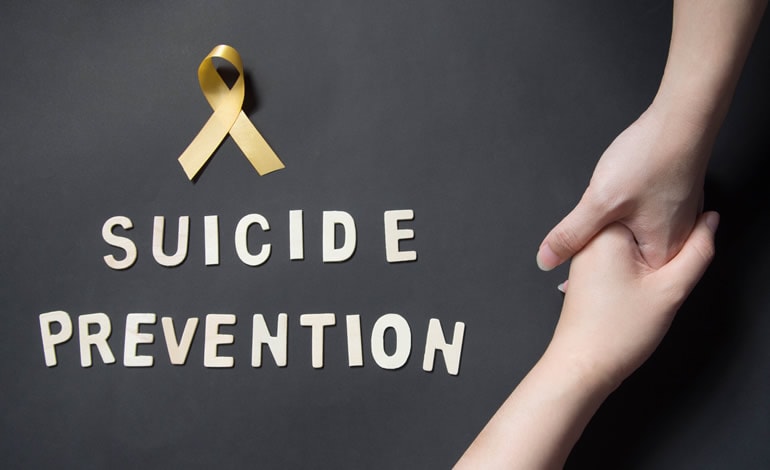Impulse-control disorders are conditions that involve the lack of self-control resulting in unbalanced emotions and behaviors that can harm one or others. Impulse Control Disorders often co-occur with substance abuse or mental health disorder. The individual generally feels pent-up stress, anxiety, and negative emotions before committing the impulsive act. During the impulse, the individual will often feel a wave of gratification, pleasure, or relief, and shortly after some may experience feelings of guilt and shame. Individuals with impulse control disorders usually find their actions repulsive and highly distressing, and therefore they are aware they do not have control over their lives.
What Classifies an Impulse Control Disorders:
Violating the Rights of Others
Impulse-control disorders are included in the same chapter as disruptive and conduct disorders in the fifth edition of the Diagnostic and Statistical Manual of Mental Disorders (DSM-5) and are unique in that all these disorders are manifested by behaviors that violate the rights of others. Impulsive disorders such as kleptomania, pyromania, intermittent explosive disorder, compulsive gambling, compulsive gambling, compulsive shopping, compulsive sexual disorders, and trichotillomania are the most common. However, trichotillomania (pulling out one’s own hair) and skin picking are now classified under obsessive-compulsive disorders. Although impulses drive them, they are not considered to violate the rights of others. Violating the rights of others is what is a common factor in Impulse Control Disorders.
In general impulse-control disorders are more common in males than females and often first occur in childhood or early adolescence. Compulsive buying, compulsive gambling, and compulsive sexual disorders were once classified as impulse disorders; however, they are now in separate categories of the DSM-5 and are commonly known by many professionals as behavioral disorders. Regardless, these disorders are often driven by unhealthy impulses; however, they tend not to wreak havoc on society and others and hence are not classified as impulse disorders per se.
Signs and Symptoms of Impulse Control Disorders
- Compulsive lying
- Poor social skills
- Stealing
- Hair pulling
- Spending excessive amounts of money
- Social isolation
- Stealing
- Risky sexual behavior
- Explosive anger
- Sudden acts of violence
- Lack of patience
- Compulsive and obsessive thought patterns
- Irritability
- Fear of abandonment
- Lack of control
- Emotional detachment
- Impulsive actions or behaviors
Kleptomania
Kleptomania is the repetitive and uncontrollable action of stealing items that are not for personal use. Examples include men who steal women’s clothing or vice versa. These stolen items usually have no use for the individual, and the individual often gives these items away, throws them away, or hoards them. Often individuals are caught in the act and reprimanded, but their urges are so strong that they are driven to steal again and again until they seek professional treatment. We have seen this with celebrities who suffer from Kleptomania where oftentimes many of us wonder why they stole when they have the money to purchase whatever item they took.
Pyromania
Pyromania is a rare disorder characterized by the deliberate act of setting fires on more than one occasion, a fascination or attraction to fires, a tension or arousal before the act followed by a sensation of gratification or relief after setting the fire or being a witness to the act. This disorder is more common in males, especially those with poor social skills or learning disabilities.
Intermittent Explosive Disorder
Intermittent explosive disorder is characterized by recurrent, short-lived, excessive outbursts of anger or aggression that is disproportionate to the stressor at hand. These outbursts usually only last 30 minutes; however, physical violence or property damage can ensue. Road rage resulting in physical violence is an example of intermittent explosive disorder, and some people experience symptoms such as tremors, heart palpitations, chest tightness, head pressure, or hearing an echo before their aggressive episode.
Compulsive Buying
Compulsive buying is technically not classified as an impulse control disorder but has many shared characteristics. Compulsive buyers often purchase unnecessary items on impulse. Compulsive buying usually occurs after experiencing feelings of loneliness, lack of control, and low self-esteem, and the act of buying something often brings a rush of euphoria.
Compulsive Gambling
Compulsive gambling is now considered an addiction disorder; however, it shares many of the same characteristics as impulse control disorders. A compulsive gambler progresses from occasional gambling to habitual gambling and has a difficult time knowing when to fold to quit. Individuals with compulsive gambling habits will often bet more and more money to attain a euphoric high, even if they continually lose their money.
Compulsive Sexual Disorders
Often called hypersexuality, compulsive sexual behaviors are classified as an obsessive preoccupation with sexual fantasies, urges, or actions that are difficult to control. These compulsions often affect your job, health, and personal life. Common acts associated with compulsive sexual disorders include masturbation, pornography, and prostitution.
Treatment for Impulse-Control Disorders:
How AKUA Can Help
There is no FDA-approved medication for the treatment of impulse-control disorders, and therefore psychotherapy is the mainstay of therapy for impulse-control disorders. As with all other mental health disorders, other co-occurring disorders can present with impulse-control disorders, and therefore it is essential to treat these disorders simultaneously. Cognitive-behavioral therapy (CBT) and acceptance and commitment therapy (ACT) are the mainstay treatments of choice for impulse control disorders. These therapies work to recognize the maladaptive thought patterns, emotions, and behaviors associated with the impulses. These therapy approaches work to resolve these negative thought patterns by teaching the appropriate coping skills to accept and embrace these urges without acting on them.
AKUA Mind and Body Treatment
AKUA Mind and Body is a full-service treatment program that offers a wide range of “east meets west” treatment modalities for many different populations struggling with impulse control disorders and other mental health and substance use disorders. AKUA Mind and Body treats co-occurring disorders and works diligently with each client and their family to ensure that treatment is specifically tailored to their needs, and not just their disorder.
AKUA Mind and Body offers detoxification, intensive treatment programs, and outpatient treatment programs. AKUA Mind and Body uses a blend of holistic approaches combined with evidence-based treatment to help individuals who have been affected by impulse control disorders to recognize their underlying triggers and develop healthy coping skills. Regardless of where you are in your recovery process, AKUA Mind and Body can help.




